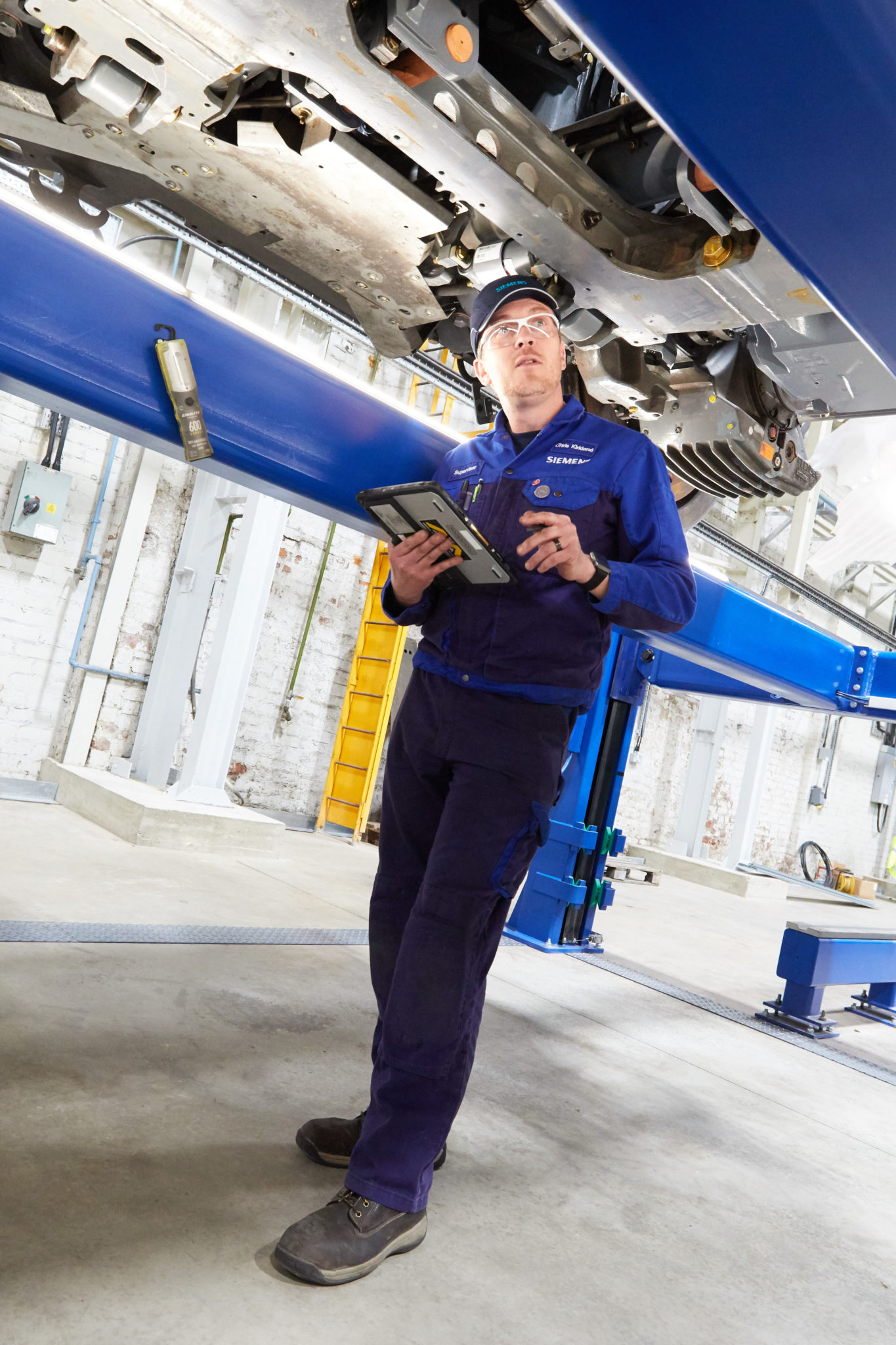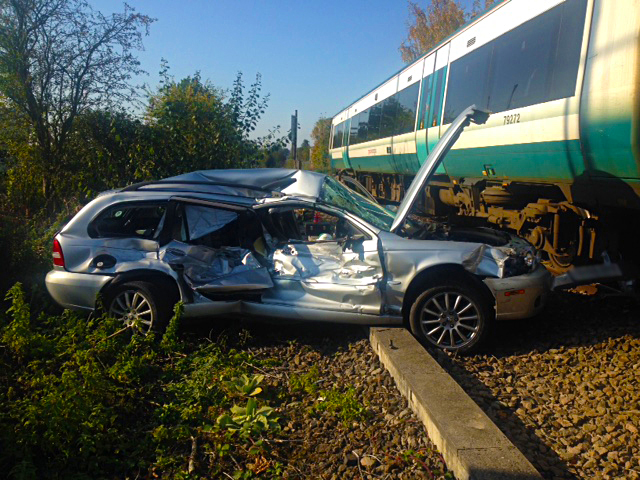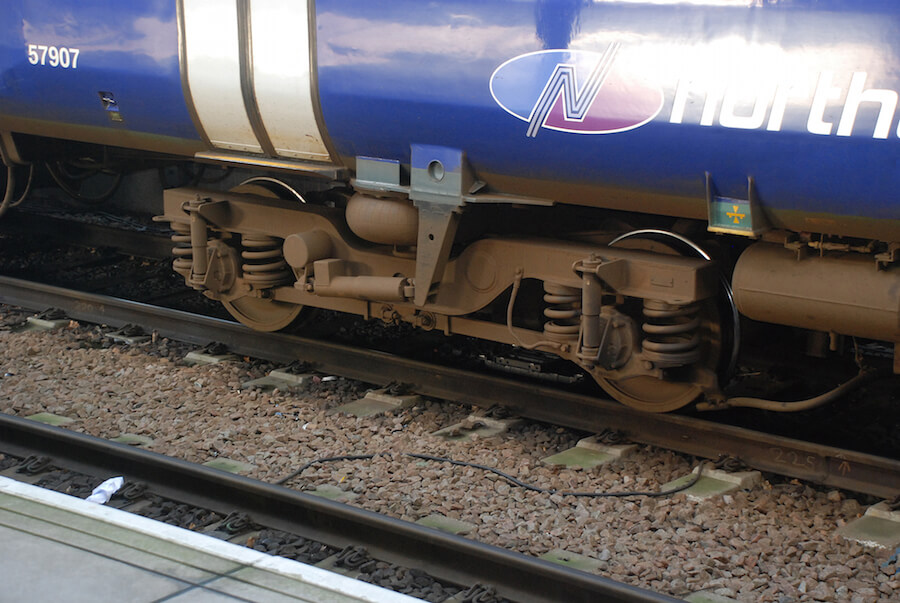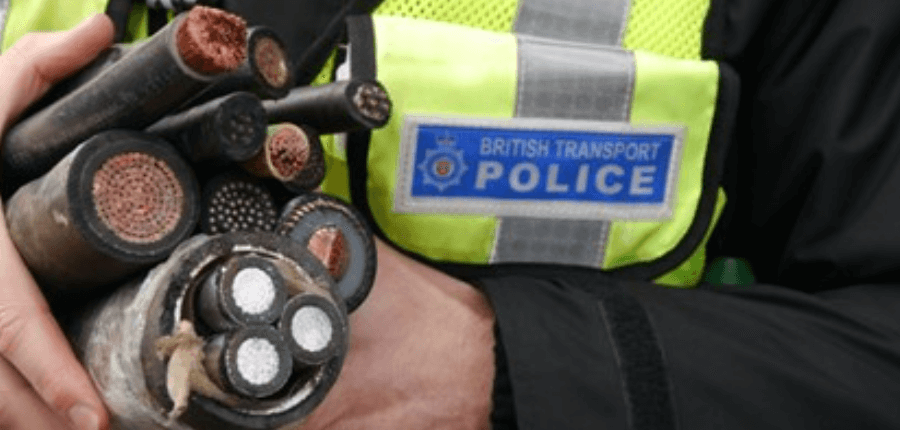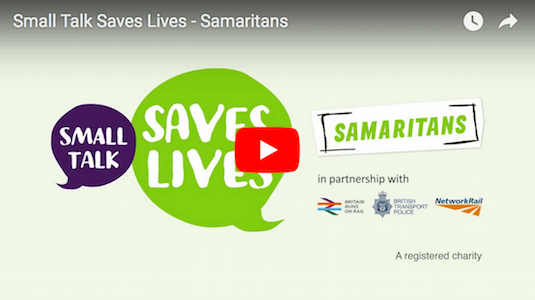The Small Talk Saves Lives campaign, launched by the Samaritans in collaboration with the British Transport Police, Network Rail and other members of the rail industry in 2017 has resulted in a growing number of the public keeping an eye out for vulnerable individuals.
Read: New Campaign Launched to Help Prevent Railway Suicides
Figures released on 7 November 2018 exhibit a 20 percent increase in the number of times a member of the public intervened to prevent a suicide in the rail environment compared to 2017 figures. Members of the public acted 163 times between January and September, which is equivalent to approximately one in ten interventions.
The Samaritans report that for every life lost on the railways, six are saved by people around them (2016/17 figures using RSSB and BTP data).
The focus of the Small Talk Saves Lives campaign is that everyone is able to help save a life. Anyone who notices someone who appears at risk can be helped if we engage them in small talk. It can be enough to interrupt suicidal thoughts and motivate them to seek help. It is an important element of the campaign to let members of the public know they won’t be making things worse.
Warning signs that someone might be at risk include: a person standing alone and isolated, looking distant or withdrawn, staying on the platform for a long time without boarding a train, and exhibiting unusual behaviour or looking out of the ordinary in their appearance. However, there is no list of indicators that mean someone is or isn’t at risk. The best advice is: act on your instincts.
In addition to engaging a vulnerable person in conversation, other options include alerting a member of staff and calling the police. Physical interventions are not recommended.
This message is highlighted in a new video, coupled with special station announcements across the UK. It is spoken by television and radio presenter Gaby Roslin who gave her backing to the Small Talk Saves Lives campaign after a personal experience in a park.
Gaby Roslin said:
“The little conversations we have every day can be all that’s needed to interrupt suicidal thoughts. Once you know that you have the power to make a difference, you’re more likely to step in and do something. I wanted to get involved in the Small Talk Saves Lives campaign after noticing someone in a park and trusting my instincts. Just a few words can have a huge impact.”
Gillian Assor is a member of the public who helped save a life by striking up a conversation:
“It was getting dark and as we were walking I noticed a young man, he was bent over and sobbing, and in a place where he could have come to harm. I couldn’t just walk past him. I said, ‘Excuse me, are you okay?’ And he replied straightaway, ‘No, I’m not.'”
She continued her conversation and with time the young man calmed down and phoned his parents who came to pick him up. A few weeks later he got in touch with Ms. Assor on social media. During the meeting that followed he said, ‘You saved my life.’
The Samaritans have trained almost 18,000 rail staff and BTP officers in suicide prevention. However, the Small Talk Saves Lives campaign was developed after it emerged that passengers, too, could play a key role in preventing suicide.
Samaritans CEO Ruth Sutherland said:
“It’s really heartening to see more members of the public feeling they have the confidence and knowledge to act if they’re worried about someone, and we’re grateful for their support. Suicide is preventable and any one of us could have an opportunity to save a life. And a study shows some of us make small talk more than ten times a day.
“A phrase as simple as ‘I can’t believe this weather’ could be enough to interrupt a person’s suicidal thoughts. Even if small talk doesn’t come naturally to you, if something doesn’t feel right, please try to start a conversation. There’s no evidence you’ll make things worse.”
Ian Stevens, Head of Suicide Prevention at Network Rail, said:
“We’re working hard across the rail industry to inform both our staff and customers of the important role they can play in suicide prevention, not only on the railway but in their communities too. One life lost is one too many; we want to highlight how suicidal thoughts can be interrupted, and that people can and do recover. Realising another person cares enough to stop and talk to you can make all the difference. It can be the first step on that road to recovery.”
The Samaritans will be out in force at UK stations to help promote the Small Talk Saves Lives campaign. You can follow the campaign yourself on social media using the hashtag #SmallTalkSavesLives.
Learn more about the Small Talk Saves Lives campaign on the Samaritans website.


















